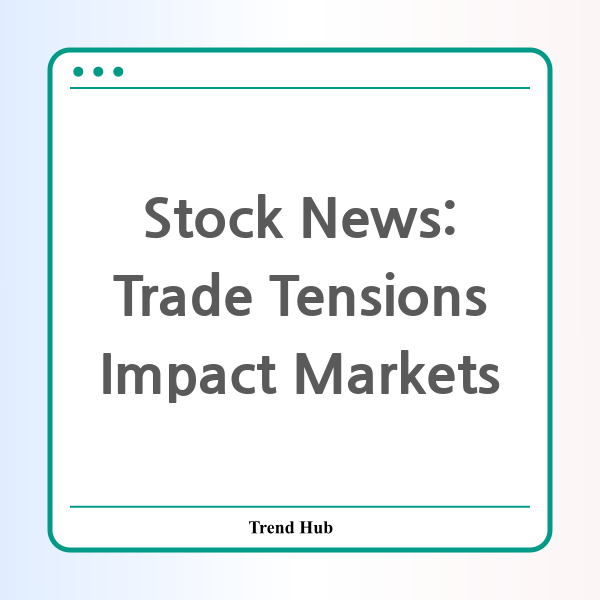* This website participates in the Amazon Affiliate Program and earns from qualifying purchases.

As stock futures remain largely unchanged, traders brace for a potential shift in market sentiment with elevated Treasury yields weighing heavy on investor confidence. The recent announcements from President Trump regarding tariffs, particularly targeting foreign-made iPhones, have ruffled feathers among tech investors, leading to notable declines in major indices.
After an impressive six-week rally where the S&P 500 experienced one of its best stretches in the past 75 years, concerns are resurfacing as trade tensions appear to escalate once again. Trump’s announcement of a proposed 25% tariff on iPhones sold in the U.S. that are not manufactured domestically is among the more aggressive stances he has taken this year. The President’s tweet on Truth Social indicated that if Apple does not produce its devices in the U.S., they would be obligated to pay hefty tariffs. This declaration resulted in a 3% drop in Apple shares during premarket trading.
Moreover, the climate of uncertainty is compounded by Trump's recommendation to impose a 50% tariff on the European Union, citing stalled trade discussions. The ramifications of these decisions are already being felt, with stock futures reflecting a decline—futures dropped by 601 points, or 1.4%, alongside falls in the Dow, S&P 500, and Nasdaq. The underlying sentiment suggests that the market’s optimism regarding trade negotiations may have been misplaced.
Understanding Market Reactions
Investment strategist Ross Mayfield from Baird emphasized that despite the recent positive momentum, the re-escalation of trade rhetoric threatens market stability. He mentioned, "I don't think we'll retest the lows or anything like that, unless it really ramps up, but this is certainly a step in the wrong direction from the market's perspective." His remarks resonate with many analysts, as rising bond yields, which recently peaked at 5.161%, reflect investor anxiety about inflation and economic growth, particularly as the U.S. credit rating takes a hit, falling to Aa1 from Aaa. This downgrade signifies concerns over the expanding deficit and increased debt servicing costs.
Broader Implications for the Stock Market
Besides the direct impact of tariffs on tech stocks like Apple, other equities are also feeling the pressure. Companies such as Alphabet and Amazon experienced declines exceeding 2.5%, painting a grim picture for the tech sector as a whole. In addition, the stock of Sonoco Products Inc. received a rare double upgrade by Wells Fargo, yet even this positive news could not offset the broader market concerns as the company's shares have lost more than 7% this year alone.
Overall, as traders navigate this complex landscape of tariffs and rising yields, the focus remains on how sustainable the recovery post-de-escalation in trade talks can actually be. With optimism now shadowed by uncertainty, investors are urged to remain vigilant about future developments that could sway the market one way or the other.
In light of these developments, it is crucial for investors to keep an eye on the evolving trade landscape and adjust their strategies accordingly. The upcoming weeks will be pivotal as negotiations continue and further tariff announcements could potentially reshape market dynamics.
* This website participates in the Amazon Affiliate Program and earns from qualifying purchases.